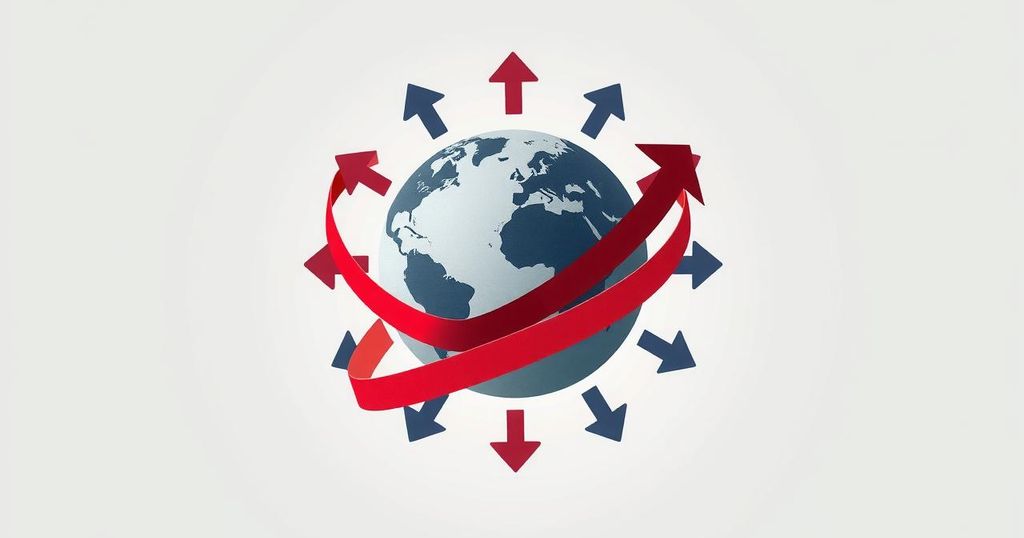World news
ALEXANDER GABUEV, ASIA, CARNEGIE RUSSIA EURASIA CENTRE, DEFENSE, DONALD TRUMP, EUROPE, EUROPE/ASIA, GABUEV, GEOPOLITICS, IRAN, KOREA, NORTH, KOREA, SOUTH, KREMLIN, KYIV, MILITARY SUPPORT, MOSCOW, NORTH AMERICA, NORTH KOREA, PYONGYANG, RUSSIA, RUSSIA-NORTH KOREA COOPERATION, RUSSIA-UKRAINE WAR, SEOUL, SKY NEWS, TEHRAN, UK, UKRAINE, UNITED STATES, US, VLADIMIR PUTIN, WAR, WASHINGTON, WEST
Daniel O'Connor
0 Comments
Russia and Iran’s Pact: A New Era of Strategic Alliance
Russia is set to sign a strategic partnership with Iran, echoing a similar treaty with North Korea. This pact, aimed at enhancing military cooperation, raises alarms in the West regarding potential threats to global security, especially in light of the ongoing Ukraine crisis. Analysts suggest this alliance may bolster Russia’s efforts to resist sanctions and support its military objectives.
Russia is poised to finalize a strategic partnership pact with Iran, akin to an earlier agreement with North Korea. This alliance reflects a deepening relationship that has emerged since Moscow’s invasion of Ukraine. With the signing of this pact, concerns have been raised in the West regarding the potential implications for global security and geopolitics.
Russian Foreign Minister Sergei Lavrov has asserted that this agreement is not aimed against anyone. However, the earlier pact with North Korea included a mutual defense clause, raising alarms in Washington and Kyiv. Recent developments, such as the capture of North Korean soldiers by Ukraine, suggest that the fears of Western nations may be justified.
Experts such as Alexander Gabuev from the Carnegie Russia Eurasia Centre indicate that Russia’s foreign policy is now heavily focused on the war in Ukraine. The partnership with Iran is viewed through the lens of military and economic cooperation, making Iran an asset for Russia’s ongoing conflict. The collaboration could serve to mitigate sanctions and bolster Russia’s defense efforts.
There are already allegations that Iran has supplied Moscow with ballistic missiles and drones. Both nations have denied these claims but intend to strengthen their cooperation in defense technology through this partnership. Gabuev elaborates that while the public aspects of the pact may appear benign, substantial cooperation regarding weaponry and military technology forms the core of their alliance.
The timing of the treaty signing has been described by Russian officials as a coincidence, despite coinciding with the inauguration of Donald Trump as US President. Nonetheless, such optics serve Russia’s narrative that the global political landscape is shifting away from Western dominance, bolstering Putin’s aspirations for a multipolar world free from Western influence.
This partnership with Iran, following the earlier agreement with North Korea, demonstrates Moscow’s attempts to showcase solidarity among nations facing sanctions. It serves as a reminder to the West of the evolving geopolitical dynamics and the potential challenges to the established international order.
The emerging alliance between Russia and Iran underscores a significant strategic shift amid changing global dynamics. Putin’s efforts to align with countries perceived as adversaries to the West suggest a concerted attempt to create a counterbalance to US-led influences. The prior agreement with North Korea raises critical concerns about military collaboration and its implications for international security, particularly in the context of the ongoing Ukraine crisis and sanctions.
The upcoming pact between Russia and Iran signals a troubling trend for Western nations as it highlights the increasing military and diplomatic collaboration between these two nations. As Russia intensifies its focus on the Ukraine conflict, the implications of this partnership have the potential to reshape the geopolitical landscape, emphasizing concerns regarding regional security and the efficacy of Western sanctions.
Original Source: news.sky.com




Post Comment